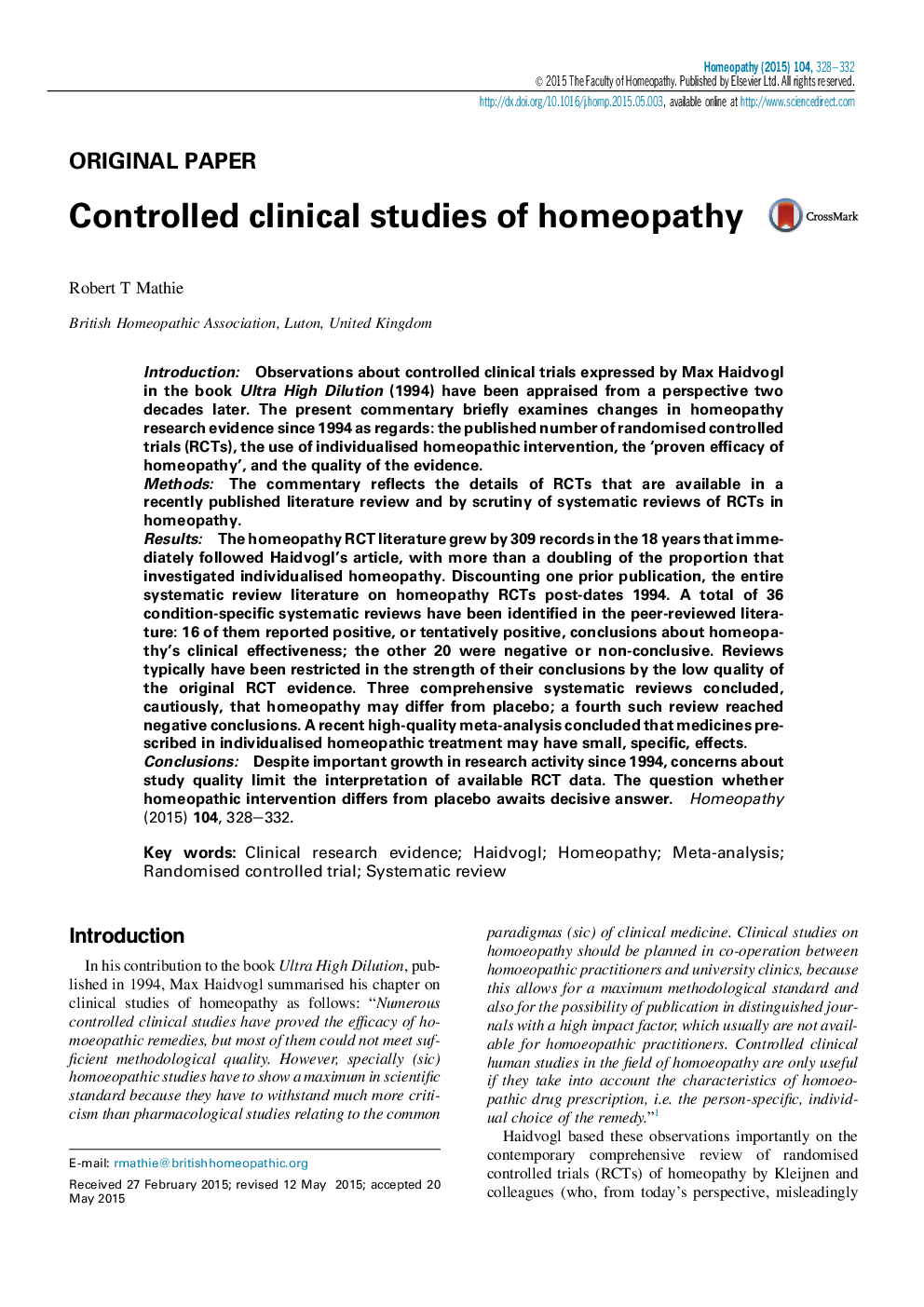| کد مقاله | کد نشریه | سال انتشار | مقاله انگلیسی | نسخه تمام متن |
|---|---|---|---|---|
| 2629815 | 1136633 | 2015 | 5 صفحه PDF | دانلود رایگان |
• Since 1994 the published number of randomised controlled trials (RCTs) has grown by 309 records, with a doubling of the proportion that investigated individualised homeopathy.
• A total of 36 condition-specific systematic reviews are identified in the current peer-review literature.
• Research conclusions are limited by low quality of the original RCT evidence.
• Whether homeopathic intervention differs from placebo awaits decisive answer.
IntroductionObservations about controlled clinical trials expressed by Max Haidvogl in the book Ultra High Dilution (1994) have been appraised from a perspective two decades later. The present commentary briefly examines changes in homeopathy research evidence since 1994 as regards: the published number of randomised controlled trials (RCTs), the use of individualised homeopathic intervention, the ‘proven efficacy of homeopathy’, and the quality of the evidence.MethodsThe commentary reflects the details of RCTs that are available in a recently published literature review and by scrutiny of systematic reviews of RCTs in homeopathy.ResultsThe homeopathy RCT literature grew by 309 records in the 18 years that immediately followed Haidvogl's article, with more than a doubling of the proportion that investigated individualised homeopathy. Discounting one prior publication, the entire systematic review literature on homeopathy RCTs post-dates 1994. A total of 36 condition-specific systematic reviews have been identified in the peer-reviewed literature: 16 of them reported positive, or tentatively positive, conclusions about homeopathy's clinical effectiveness; the other 20 were negative or non-conclusive. Reviews typically have been restricted in the strength of their conclusions by the low quality of the original RCT evidence. Three comprehensive systematic reviews concluded, cautiously, that homeopathy may differ from placebo; a fourth such review reached negative conclusions. A recent high-quality meta-analysis concluded that medicines prescribed in individualised homeopathic treatment may have small, specific, effects.ConclusionsDespite important growth in research activity since 1994, concerns about study quality limit the interpretation of available RCT data. The question whether homeopathic intervention differs from placebo awaits decisive answer.
Journal: Homeopathy - Volume 104, Issue 4, October 2015, Pages 328–332
